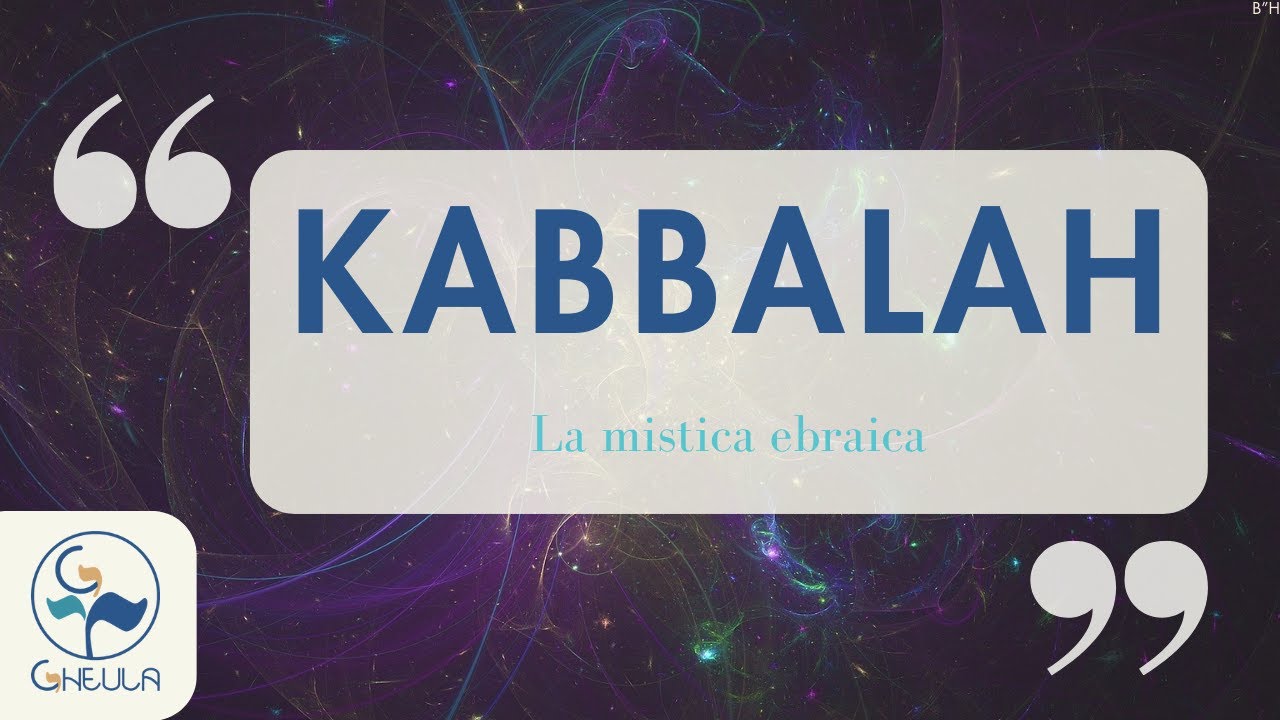What is Kabbalah?
Summary
TLDRThis video explores Kabbalah, often misunderstood as mere Jewish mysticism. It traces Kabbalah's origins from the 12th century in Southern Europe, emphasizing key concepts such as Ain Sof, the infinite God, and the Sefirot, which symbolize divine emanations. The discussion highlights the *Zohar*, the principal Kabbalistic text, and its impact on both traditional and modern interpretations. As Kabbalah gains popularity through platforms like the Kabbalah Center, it faces criticism for its adaptations. This engaging overview encourages viewers to explore Kabbalah's profound history and relevance in contemporary culture.
Takeaways
- 😀 Kabbalah is a mystical tradition within Judaism that seeks to understand the divine and the universe.
- 🌟 Its origins date back to 12th-century southern Europe, particularly in Provence and the Iberian Peninsula.
- 📜 The foundational text of Kabbalah is the *Bahir*, which introduces key concepts like the ten Sefirot.
- 💫 The *Zohar*, written by Rabbi Moses de Leon in the 13th century, expands on Kabbalistic ideas and presents mystical narratives about the Torah.
- 🔮 Central to Kabbalistic thought is *Ain Sof*, representing the infinite aspect of God and the flow of divine energy through the Sefirot.
- 🌍 Kabbalah emphasizes the concept of *Tikkun Olam*, the idea that human actions can affect the divine realm and help repair the world.
- 🏠 The 15th century expulsion of Jews from the Iberian Peninsula shifted Kabbalistic thought to Eastern Europe.
- 🧙 Rabbi Isaac Luria's teachings revolutionized Kabbalah by introducing concepts of divine contraction and human redemption.
- 🎉 In modern times, Kabbalah has gained popularity through movements like the Kabbalah Center, attracting a wide audience, including celebrities.
- ⚠️ This popularization, often termed 'pop Kabbalah,' has sparked controversy, particularly among Orthodox communities, due to its divergence from traditional teachings.
Q & A
What is the definition of Kabbalah?
-Kabbalah is often defined as Jewish mysticism, characterized by its complex and multifaceted nature, which eludes a singular definition.
When and where did Kabbalah originate?
-Kabbalah emerged in the 12th century, primarily in Provence, southern France, and the Iberian Peninsula, particularly in Girona and Castile.
What does the term 'Kabbalah' mean?
-The Hebrew term 'Kabbalah' translates to 'that which has been received,' suggesting a tradition of secret wisdom believed to be handed down since the time of Moses at Mount Sinai.
What is the significance of the 'Bahir' in Kabbalistic thought?
-The 'Bahir' is one of the earliest significant kabbalistic texts, written in the late 12th century, introducing crucial concepts like the Sefirot and the idea of gender dualism within the divine.
What are the Sefirot in Kabbalah?
-The Sefirot are ten divine powers or emanations from God that represent different aspects of the divine, essential for understanding the relationship between God and humanity.
How did Isaac Luria contribute to Kabbalistic thought?
-Isaac Luria, a prominent 16th-century Kabbalist, introduced key concepts such as Tzimtzum, which explains God's contraction to allow creation, addressing the existence of evil as a flaw in creation.
What is the 'Zohar' and its significance?
-The 'Zohar,' composed by Moses de Leon in the 13th century, is a major kabbalistic text presenting a mystical commentary on the Torah, emphasizing the relationship between God and the Shekhinah.
How has Kabbalah influenced modern culture?
-Kabbalah has transcended its traditional boundaries, attracting diverse followers, including celebrities, and has influenced popular culture, sparking debates about cultural appropriation and commercialization.
What role does the Kabbalah Center play in contemporary spirituality?
-The Kabbalah Center, founded in the 1980s, aims to make Kabbalistic teachings accessible to a broader audience, promoting personal spiritual exploration and understanding.
What are some key themes in modern Kabbalistic interpretations?
-Modern Kabbalistic interpretations emphasize personal mystical experiences and accessibility to spiritual knowledge, highlighting Kabbalah's adaptability and enduring relevance in contemporary spirituality.
Outlines

هذا القسم متوفر فقط للمشتركين. يرجى الترقية للوصول إلى هذه الميزة.
قم بالترقية الآنMindmap

هذا القسم متوفر فقط للمشتركين. يرجى الترقية للوصول إلى هذه الميزة.
قم بالترقية الآنKeywords

هذا القسم متوفر فقط للمشتركين. يرجى الترقية للوصول إلى هذه الميزة.
قم بالترقية الآنHighlights

هذا القسم متوفر فقط للمشتركين. يرجى الترقية للوصول إلى هذه الميزة.
قم بالترقية الآنTranscripts

هذا القسم متوفر فقط للمشتركين. يرجى الترقية للوصول إلى هذه الميزة.
قم بالترقية الآنتصفح المزيد من مقاطع الفيديو ذات الصلة
5.0 / 5 (0 votes)






